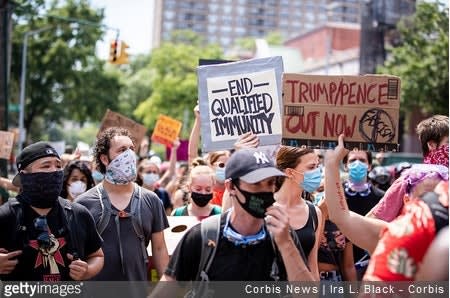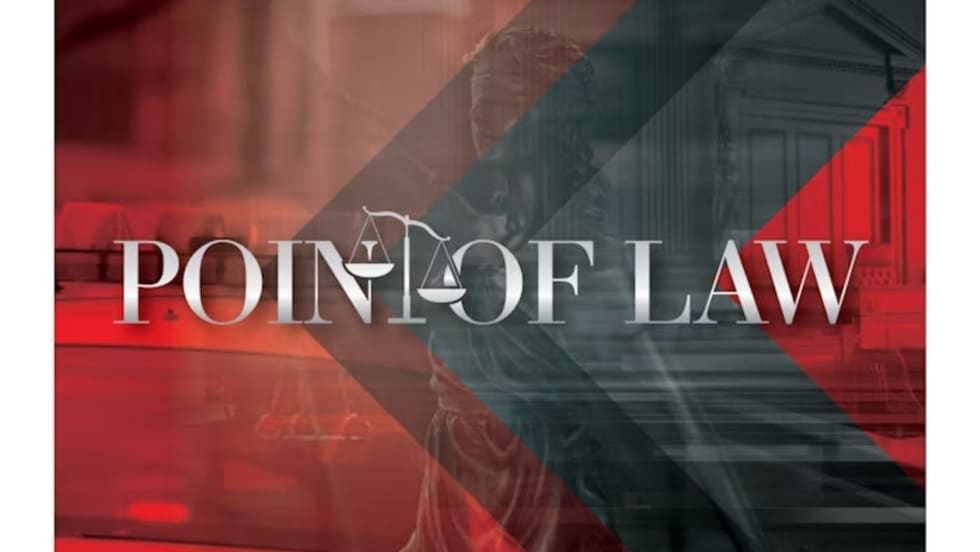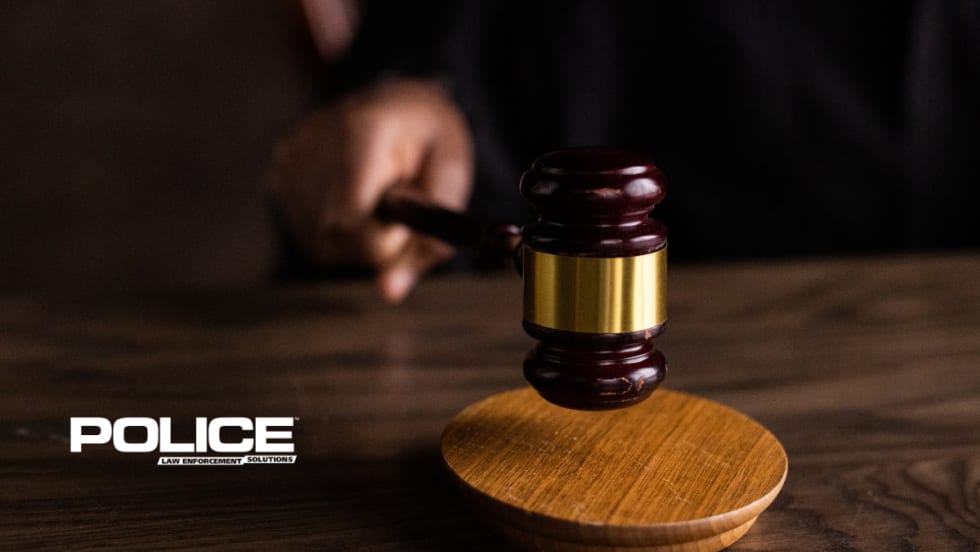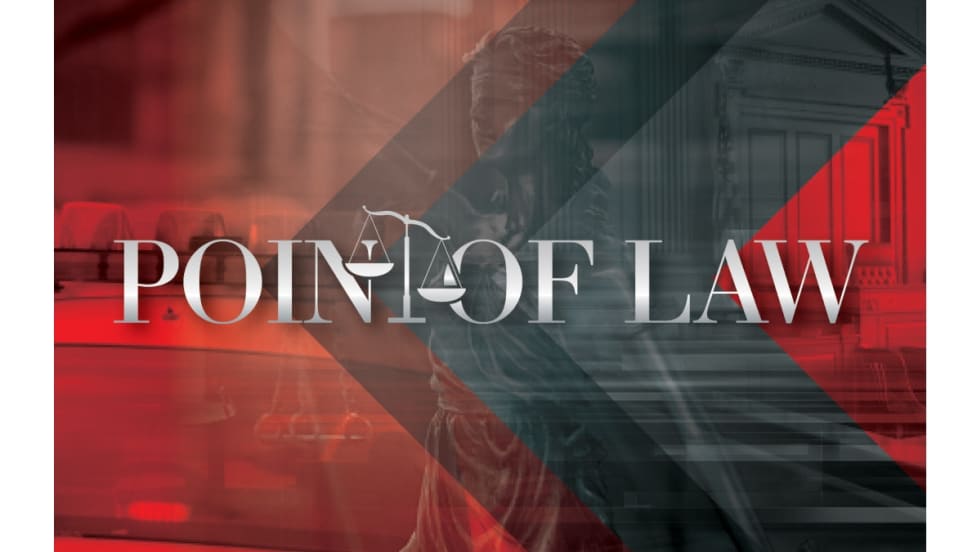The concept of qualified immunity was established as a shield against liability for government officials—including law enforcement officers—who unknowingly violate someone’s civil rights. It was created to reduce the number of unwarranted lawsuits faced by government employees. It is not, despite the claims of those who wish to eliminate it, a shield against all lawsuits involving excessive force, illegal searches, and the other actions that get officers sued.
Editorial: Attacking Qualified Immunity
Activists have launched a political and legislative campaign to make it even easier to sue you.

The keyword in qualified immunity is “qualified.” There’s a two-part test for whether an officer’s action qualifies for immunity. One: There has to be some form of constitutional violation involved in the case. Two: If the violation occurred, then the official has to have violated a clearly established right.
That second part of the test is what makes anti-police activists angry. They believe you should be held personally liable for any action you take that violates someone’s civil rights, regardless of whether you violated clearly established law.
One, it's important to remember that qualified immunity is decided by judges. It's not automatic.
And it’s absolute hypocrisy that many of the people who are most vocal about wanting to end your qualified immunity protection are protected by even stronger shields. The journalists who write editorials calling for the end of qualified immunity have the cover of “absence of malice,” which essentially shields them from libel lawsuits over false reports, even if the reports cause harm, if they didn’t recklessly disregard the truth or intentionally harm the subject.
Then there’s judges. They have a great shield called “absolute immunity.” See the difference between your shield and theirs. They don’t have to qualify. They just have immunity, as long as they are being sued for some action they took in the scope of their official duties.
Yet two extremely powerful judges, Supreme Court Justices Clarence Thomas and Sonia Sotomayor, want to strip you of your “qualified” immunity while enjoying their absolute shield. Thomas wants the court to readdress the doctrine. And Sotomayor has said the way lower courts have applied qualified immunity has made it an “absolute shield for law enforcement officers.” Justice Sotomayor should know better, cops don’t have an absolute shield, she does.
There have been attempts to include abolition of qualified immunity in a number of “police reform” bills, even at the national level. Most of these bills have failed. Unfortunately, that didn’t happen last year in Colorado. The Centennial State is currently the only one of the 50 that no longer allows law enforcement to seek qualified immunity in state lawsuits. Note: Colorado-based officers still can qualify for immunity in federal civil rights cases.
Maybe not for long. There is a growing movement to abolish qualified immunity at the federal level. The Campaign to End Qualified Immunity is promoted by rappers, activists, athletes, and businesses. It has become a mission for ice cream magnates and anti-police gadflies Ben Cohen and Jerry Greenfield. Cohen calls qualified immunity” a get-out-of-jail free card for bad cops.”
Many of you have responded to Ben & Jerry’s attack on qualified immunity saying that you were already boycotting their products or that you plan to boycott them now. But I’ve got sad news for you. No boycott of Ben & Jerry’s will hurt these guys. They are both worth an estimated $150 million, and their money is not all derived from dairy treats. It’s likely a lot of Unilever stock. The massive British-Dutch multinational bought Ben & Jerry’s in 2000, and it allows the co-founders to continue their political activities in the name of the brand. You could boycott Unilever and its dozens of consumer brands, including Breyers, Hellmans/Best Foods, Dove soap, Q-Tips, and the list just goes on and on. But trying to boycott a company like Unilever is like trying to hold back the ocean.
So what can you do to fight back? You can learn more about qualified immunity and combat the anti-police propaganda. You can also contact your unions and make sure they are fighting state and national legislation. And you can write e-mails to your elected representatives explaining to them the importance of qualified immunity in letting you do your job.
You need to let people know what could happen if qualified immunity is abolished. Here’s the basic prediction. Officers would be less likely to take action for fear of being sued. Agencies will find it harder to recruit sworn personnel—and it’s about as hard as its ever been right now. Officers or their agencies will have to buy personal liability insurance. Taxpayers will have to pay off many more nuisance lawsuits. And the only people who will benefit will be plaintiff’s attorneys.
To learn more about Qualified Immunity and how it is applied, read this series of articles by POLICE Advisory Board member, attorney, and retired Connecticut State Police Detective Eric Daigle.
More Point of Law

Point of Law: The Limits of Electronic Searches
Can an individual be prosecuted for despicable criminal conduct based on evidence obtained in violation of the United States Constitution? Ultimately, the Ninth Circuit judges wrote, “In the circumstances of this case (United States v. Holcomb, 23-469 (9th Cir. 2025)), respect for the Constitution and the rule of law requires an answer of “no.”
Read More →
Trump Issues Order Cutting Federal Funding in Cashless Bail Jurisdictions
<strong>“</strong>Cashless bail policies allow dangerous individuals to immediately return to the streets and further endanger law-abiding, hard-working Americans because they know our laws will not be enforced,” the administration said.
Read More →
Justice Department Sues Los Angeles Over Sanctuary Policies
The DOJ said in a press release that the “sanctuary city” policies of the City of Los Angeles are illegal under federal law.
Read More →
Understanding Officer-Created Jeopardy
Officers can be criminally prosecuted for using force when their actions led to escalation during contact with subjects.
Read More →
Point of Law: The Limitations of Search Warrants
In the Tenth Circuit case of Cuervo v. Sorenson, the Court ruled officers cannot deviate from the language of the warrant.
Read More →
DOJ Dismisses Consent Decrees Affecting Louisville and Minneapolis Police
The Civil Rights Division will be taking all necessary steps to dismiss the Louisville and Minneapolis lawsuits with prejudice, to close the underlying investigations into the Louisville and Minneapolis police departments.
Read More →
New Michigan Bill would Give Officers Civil Immunity in Self-Defense Cases
House Bill 4404 would create a presumption of civil immunity for individuals who are cleared criminally after using force in self-defense, shifting the burden of proof onto plaintiffs.
Read More →
Seattle to Pay Police Captain $1 Million to Settle Lawsuit
Seattle police Capt. Eric Greening sued former Chief Adrian Diaz last year alleging that Diaz retaliated when Greening brought up concerns about racial and gender discrimination.
Read More →
Washington Agencies Ordered to Not Delete Critical Facebook Contents
Jim Leighty, a local activist, filed two federal lawsuits last year claiming both agencies deleted or hid critical comments he had written below multiple posts, while keeping comments that were pro-police in nature.
Read More →
Washington State Attorney General Sues Sheriff for Helping Immigration Enforcement
The lawsuit claims the Adams County Sheriff’s Office has illegally held people in custody based only on their immigration status, helped federal agents question people in custody, and given immigration officials confidential personal information.
Read More →

